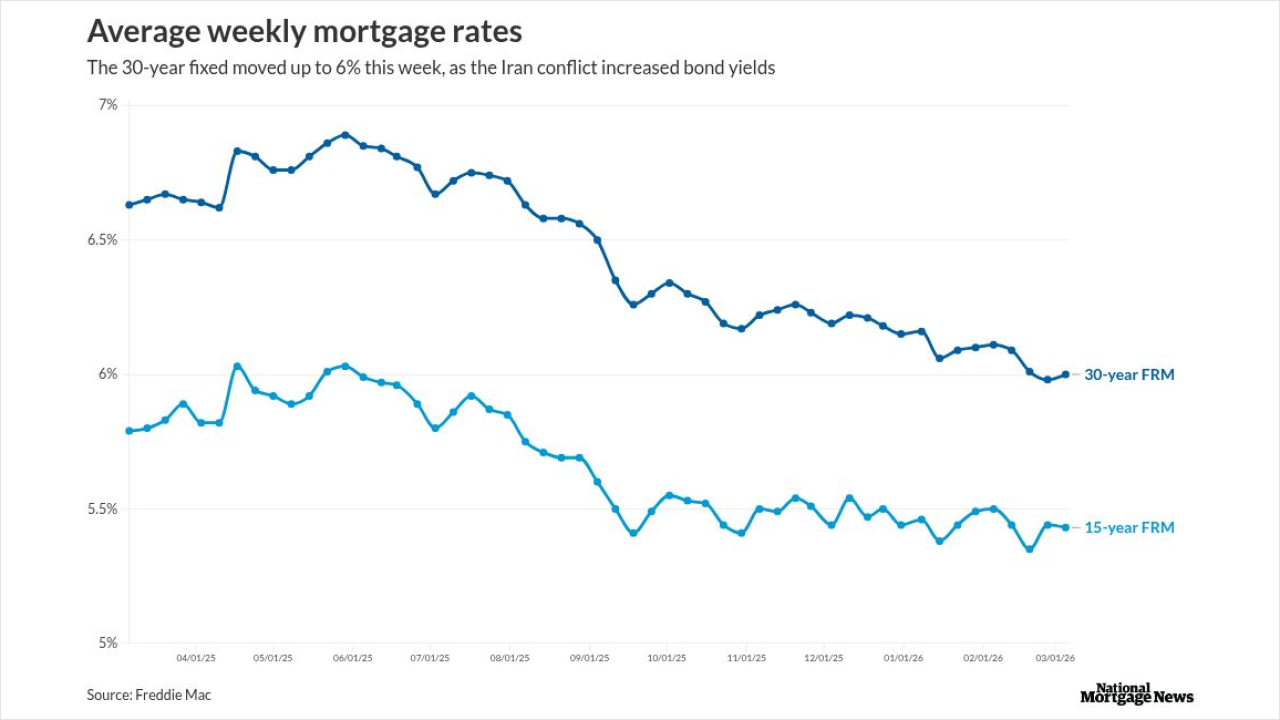Amid interest rate hikes that have
Although home prices were up in the third quarter on a year-over-year basis, they increased far less rapidly than during the first six months of 2022, according to Fannie Mae's Home Price Index. The unadjusted rate of appreciation came in at 13.8%, slowing from a
Sluggish quarterly numbers helped put the brakes on the acceleration of price growth in the past two years. Costs increased by a seasonally adjusted 0.2% from the second quarter, the slowest rise since the fourth quarter of 2011, while on an unadjusted basis, housing costs declined 0.2%.
The unpredictability and speed of interest rate movements this year have left their mark on consumer home purchase plans, shaking the housing market, according to Fannie Mae Chief Economist Doug Duncan.
"In addition to the greater affordability constraints for potential home buyers, many existing homeowners likely feel 'locked-in' to their existing, lower interest-rate mortgages," he said in a press release.
"This contributes to fewer homes being listed, as well as fewer potential buyers, and may lead to a growing share of listings having to cut prices to meet the reduced demand."
Fannie Mae's Home Price Index provided further evidence of an ongoing price reversal reported by other organizations, including Black Knight, which reporter the
The latest data from Fannie Mae, combined with additional research from the government-sponsored enterprise that points to likely declines in originations and downward trending home-buying enthusiasm, led it to forecast negative price growth by the second quarter of 2023, with an annual decline for the full calendar year. Fannie Mae's recent Home Purchase Sentiment Index indicated that 75% of consumers in September thought it was a
Purchase-application volumes had
"The supply of completed, new single-family homes for sale has begun to rise, suggesting that homebuilders may also need to begin offering greater price concessions to move inventory," Duncan said. "We expect these trends to continue in the coming months."









